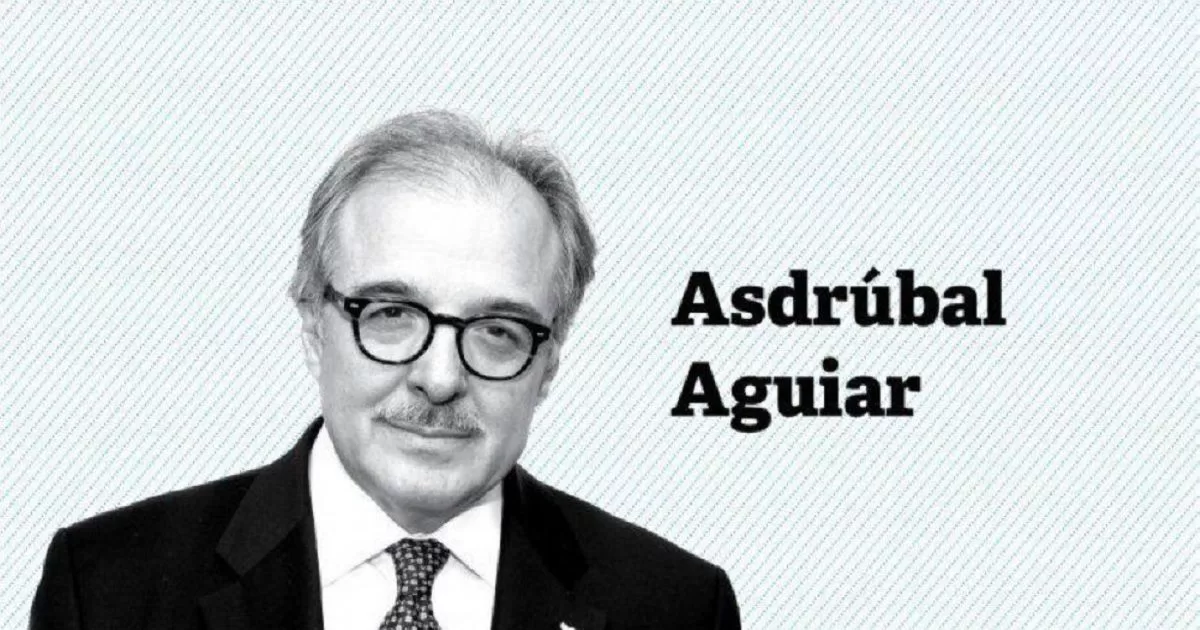After the movement of the tectonic plates occurred in Western culture, leading to its deconstruction or revisionism; in that broad arc that, starting in 1989, connects us with the East when the Brandenburg Gate opens and whose closure we can place in 2019, when the Chinese pandemic engulfs us all as a prologue to the iconic wars that have followed – Ukraine and Israel – the time has come for deep thinking. We have to ask ourselves where we are going.
Having considered God dead as a cultural and not merely religious axis, which limits our family, community, and social behaviors, and in itself after opening generous spaces to the cult of relativism in the truth of humanity, are we marching towards the empire of power? above the reason that illuminates paths? Do we truly believe that this power will be of its own free will, as it was in previous periods of our history?
I will not advance the considerations that I best explain in two books (The Modern Journey Comes to an End, 2021, and The «Epochal Break» and the Conscience of the Nation, 2023) written by me at the end of that agonal time of three decades – 1989. to 2019 – which follow the three preceding ones – 1959 to 1989 – that spoke to us, Venezuelans, of the birth of our civil democratic experience and, to the West, of the first ship that travels to space and abandons the gravitational influence of the earth .
I am referring to the unstoppable emergence of digital governance and the quantum advance of Artificial Intelligence. They do not know about spaces or time, much less do they value them because in them everything is virtuality and instantaneity and they seek the experience of a new cult: dataism, founded on the profane god of the sensory. Their algorithms imprison our animal experience to arrange it at their discretion, with complete omission of the soul.
On the other hand, those who get rid of science that denies Faith and cling to the mathematical laws of evolution, also fight for the subordination of the Human to the cult of Mother Earth, clinging to the idea of anakyklosis – everything is born, everything evolves, everything dies – which in the end will blend us into the invariable order of Nature.
Before the death of the Judeo-Christian God was declared to support the advent of the Deus ex machina – the God who descends from the machine, for the ancient Greeks – Jürgen Habermas and Joseph Ratzinger address the debate between reason and faith, both in their own right. buried by Artificial Intelligence. The last one – dies saddened by the mundane within the Vatican and as Pope Emeritus, according to the networks – argues that it is possible to achieve a universal in the midst of global dispersion, a polyphonic correlation between cultures that sustains at least the totalizing laws of decency and of the human race, constants in the Decalogue, whose tables Moses destroys.
The then Cardinal believed in the possibility of “opening themselves (such cultures) to the essential complementarity of reason and faith, so that a universal process of purification can be launched in which finally the known values and norms in some way or suspected by all men, they will recover a new capacity for illumination; so that they become the effective force for Humanity and in this way they can contribute to integrating the world.”
What is certain and verifiable is that the immediate balance seems to be different. Its key emerges from the elemental, as I see it. It is not that God has died, as Nietzsche pointed out in Thus Spoke Zarathustra, but, moreover, the human being dies as his image and, within the Judeo-Christian culture, the eminent character of his equal dignity fades and, in especially, its intimacy. The Self disappears by becoming mere data of the algorithms, or by being metabolized within the set of elements of Pachamama.
This explains, in no other way, that the first loss noticed from the moment the third and fourth industrial revolutions took hold, starting with the digital revolution, was that of the spaces of intimacy, the so-called private life or the personal and family self. They have given in, either to postmodern science and the digital narcissism that makes them a public thing, or, on another level, to those who, still believing in The Leviathan or in the State that summarizes in itself everything human that thrives and breathes, maintains that nothing outside of it can exist. And here, therefore, are the absurdities of the epistemological break or rupture that we witness today.
In the Western world, its civilization first anchored itself in the realm of religion as a personal and intimate dimension, then morality became social. “Do not do to another what you do not want done to you” preaches the Torah or “love your neighbor as yourself” reads the evangelical teaching. They are unitary expressions of the same culture. But there could, however, be a utilitarian interpretation of the Jewish perspective, such as “winning the other”, which then qualifies Christianity and becomes a moral commandment, by specifying that love must first be born in the heart, in the intimacy of the own human being.
The centrality of religious culture in the West lies, then, in the idea of “interhuman love” and this is how “true order in interhuman relations is not an artificial arrangement imposed by bosses on a flock of slaves: it would only be their caricature.” ”says René Coste. The peace, which we have lost, is ultimately an agreement between hearts; only possible when, then affirming ourselves in what we are and discovering in ourselves who we are, we recognize ourselves in others and in equal identity, which does not exclude the irreducible difference of being each one as a unique and unrepeatable being and project of what is fully human.


